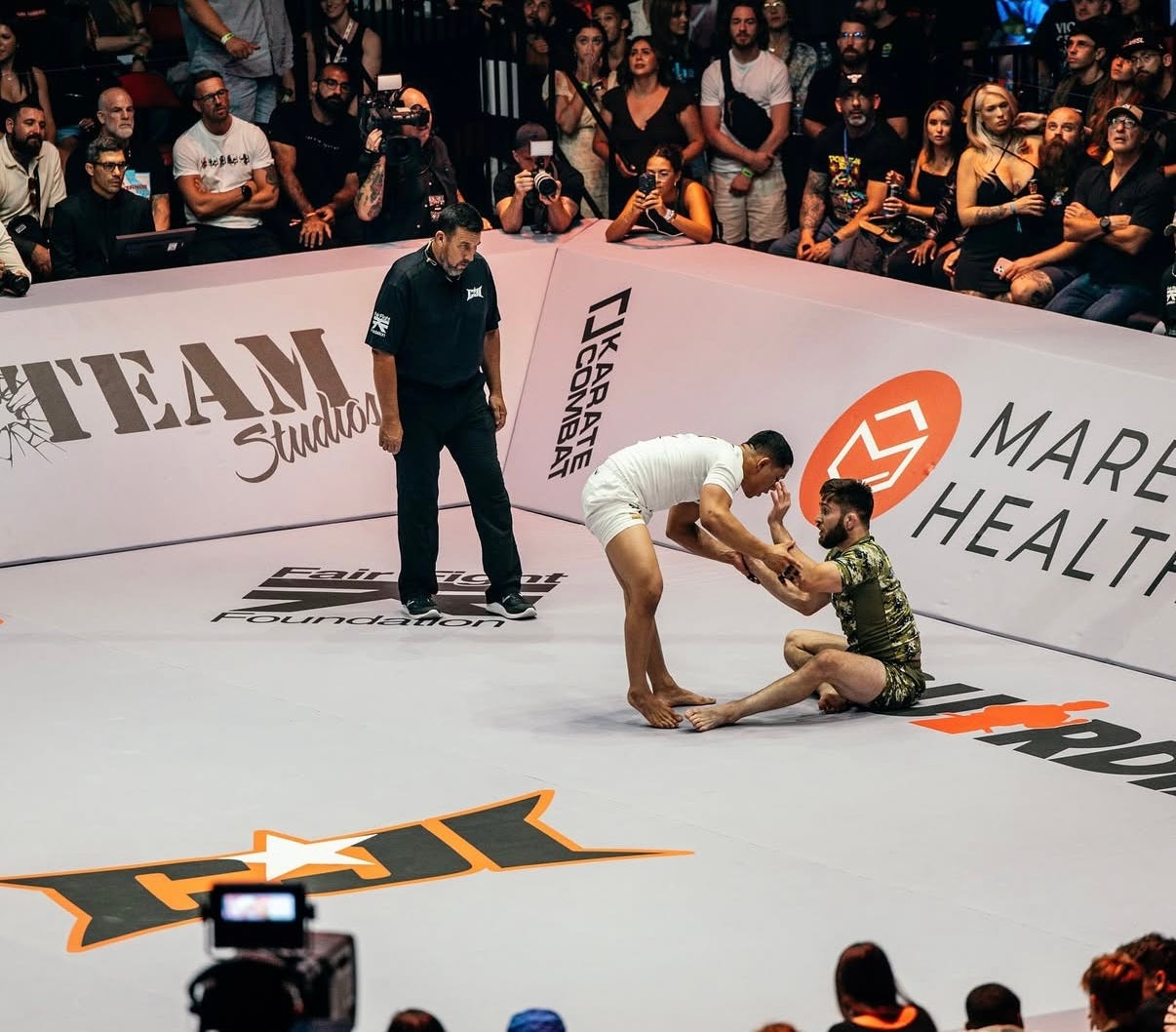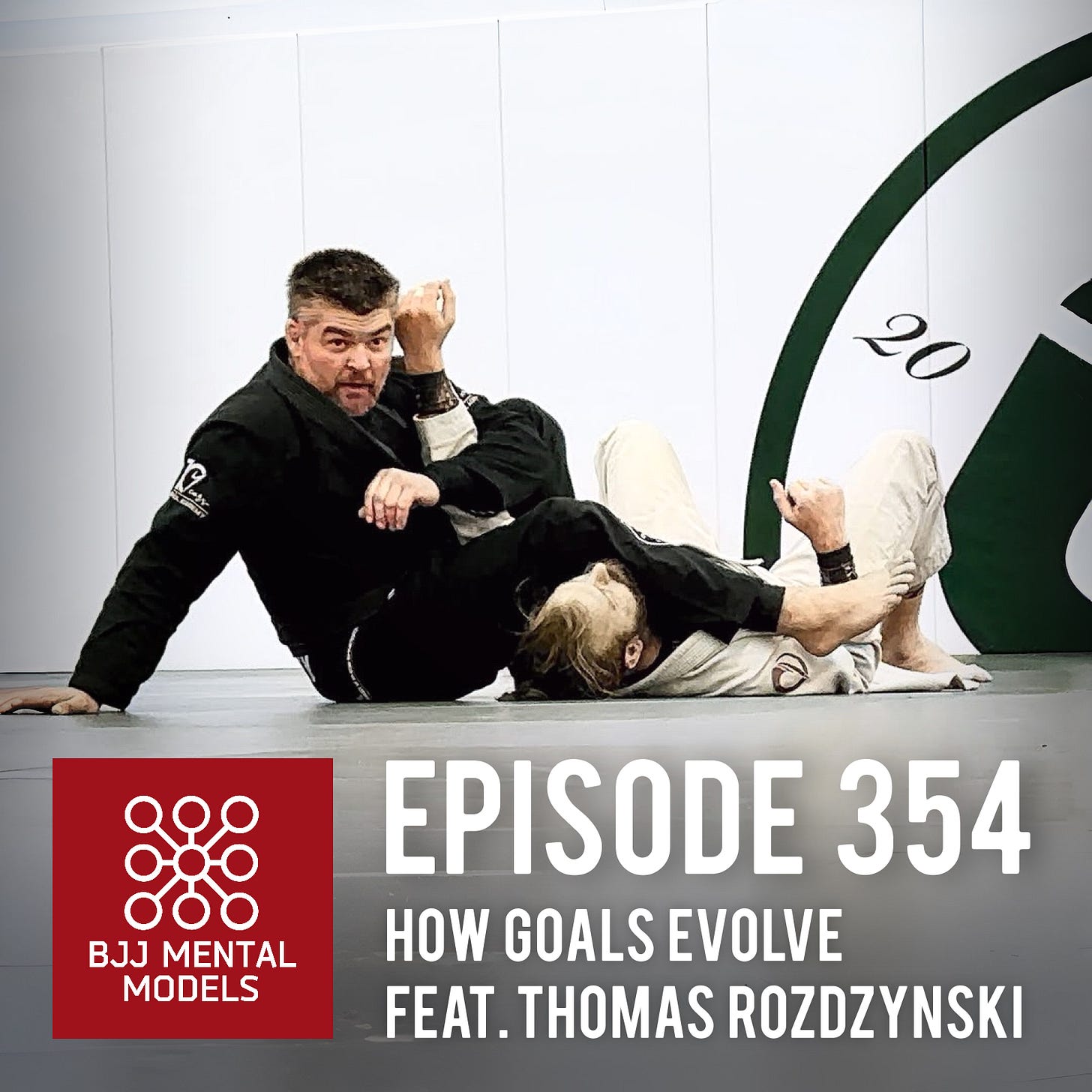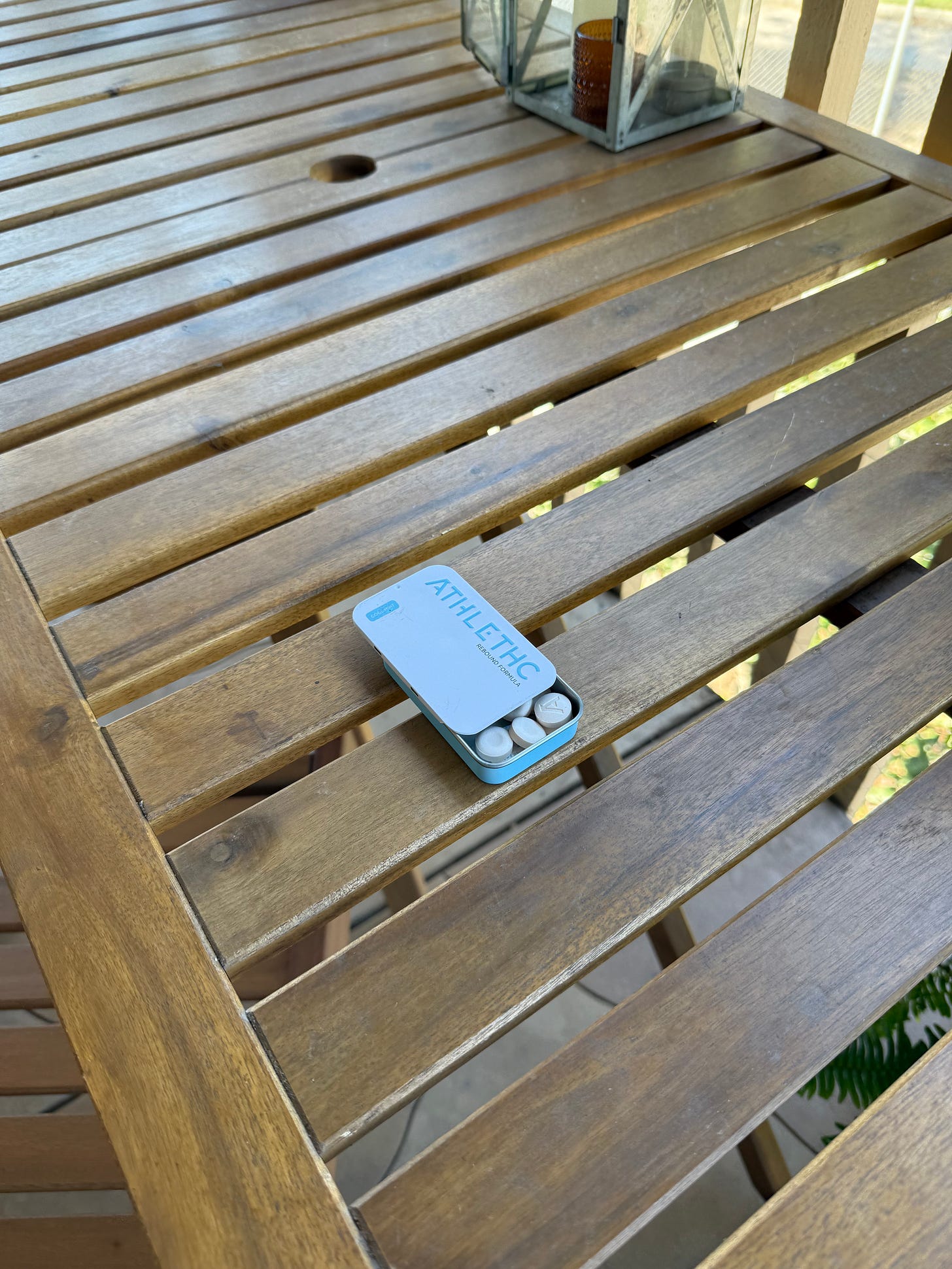
At the end of 2019, I wanted to quit Jiu-Jitsu.
I was a purple belt, a college senior, and I had absolutely no clue what the future had in store. I was doing IBJJF tournaments as often as I could afford, I was training 2-3 times per day, 6-7 days per week, and I was just beginning to teach private lessons (the first time I ever earned any money directly from Jiu-Jitsu).
I was so overwhelmed and stressed out about Jiu-Jitsu, competition, and "the future" that I broke down to a point where I wanted to quit the whole sport.
I remember one session before the 2019 IBJJF No-Gi Worlds where I came into the training and my coach tapped me 3 times in one round. This would never normally have happened at the time. I had one of the worst sessions I’d had in months.
I was burned out.
My coach told me to take a few days off. I listened as if I was secretly asking for permission to take a break anyway.
After 3 days of rest, 2 light sessions, and then 4 more days of rest before the tournament, I went out and had one of the best performances of my life at the time. I won the purple belt Worlds.
I went from wanting to quit Jiu-Jitsu to literally feeling like I was on top of the world.
There is a lesson from that experience that I learned again recently, and I want to share with you today.
Today, we're talking about burnout, performance, and where it all leads — no matter what.
I think I'm a little crazy.
After winning that world championship, I freaked out.
For the first few days, I had the high of winning, but this was also the first time that I experienced a really heavy come down from competition. I went from feeling like a world champion to feeling more depressed and anxious than I had before I won the tournament. In my experience, the high of winning rarely lasts for more than a few days, no matter what you win.
There's a really important lesson that I learned from this that we will get to in a moment.
After that win, I was terrified that “I'd peaked at 22”. I'd heard stories of guys winning major events at the lower belt and never achieving anything else in the sport, and the thought that began to drive me crazy.
A month after winning my first major championship, I signed up for 2 tournaments and a superfight. I won the first tournament and lost the superfight, and I was training for the second tournament (the IBJJF gi Pans) when the Covid-19 pandemic struck and the world ended.
I was forced into a 6-month break from competition for the first time in my career.
And during this long break, something funny happened.
You can only improve so much from competition.
When you're an up-and-coming grappler, you're told that to build your name and reach the top level, you need to compete as often as possible.
And the truth is that frequent competition does make you better. You get better at dealing with competition anxiety, you get in good shape, and you get tougher.
But you also deal with unexpected negatives when you compete all the time. that I never really learned about until that first competition break I had during the pandemic, such as:
Overuse injuries
Getting stuck in the same movement patterns
Ending up with a game with fewer dimensions
Think about it like a musician on tour:
You practice hard and write the album, and then you perform it. You can perform the album multiple times and in different formats/places, but it's really still the same album. As an artist, you need time to create and improve your craft.
Last year for ADCC, PGF, and EBI, I was pretty much the same grappler. This year, I’ve been piggybacking off of last year, and while I have improved, I haven’t improved how I would like. I’m not that different from how I was a year ago.
I never used to think about Jiu-Jitsu like a craft. I always thought of it as a sport that I needed to constantly compete in to prove my worth.
A lesson from CJI.
When I look at this year objectively, I haven't had my best competitive performances.
In part, this is maybe because people know me and know what attacks I am looking for, but it's deeper than that. That's not really a good excuse.
The hard truth is that for a while now, I haven't loved Jiu-Jitsu the way I used to.
After a decade together, I'm in a bit of a slump with the martial art I chose to marry when I started training at 17. It’s like a 7-year slump, except we’re at year 10.
I joke that living in Austin has aged me, but it's really just the Jiu-Jitsu lifestyle. The overuse injuries, the ups and downs, the social media drama, the financial struggles. I haven't had a real break from hard training and competition since 2020. One thing has always led to another.
And that takes me to the 2 lessons for today.
The first is that what I have always loved about Jiu-Jitsu has been that it has forced me to push myself to the brink. Trying to become one of the best in the world at this sport has tested me physically, mentally, emotionally, and spiritually, and I have always loved that. My favorite part about Jiu-Jitsu has always been the hard training, the stress of competition, and the thrill of testing myself.
It’s good to know what you like.
But the second lesson is a dose of reality — because I think we all need that in today's social media-focused Jiu-Jitsu culture. The second lesson is that each of us has a limit — a breaking point. A point where we need a break. You can’t just bulldoze forward all the time. None of the best BJJ athletes in the world do this, and I don’t know why I was trying to.
For me, I've hit that point for a while now, and I've ignored the check engine light to chase new horizons and opportunities. Sometimes it's worked out, and other times it hasn't, but it's all taken a toll.
Closing Thoughts
It's become clear to me that I'll probably be involved in Jiu-Jitsu in some capacity for the rest of my life. I also still have a lot more to give in terms of competition.
That said, I'm excited to take some time to enjoy the fruits of these last few years of extremely hard labor.
All of the money that I earned at CJI is going to be used to help me build the future I have been dreaming of since I was 18. As much as I want to, it's not time for the Ferrari and Gucci belt just yet... lol.
Something else I'm working on is remembering that I'm only 28. There are plenty of grapplers who compete for much longer than I do. I'm not as old as working myself to death has made me feel.
I have time.
Time to rediscover what I love about Jiu-Jitsu. Time to build new skills. Time to get strong (I miss being able to deadlift 400 pounds). Time to work on my mental health. Time to heal injuries.
A decade into Jiu-Jitsu, I think that's the most important thing to remember.
Whether you've been training for 2 months, 2 years, or 2 decades, take a breath. Don't forget to stop and enjoy the experience every once in a while.
The Grappler's Diary is sponsored by BJJ Mental Models, the world's #1 Jiu-Jitsu podcast!
This week's guest was Thomas Rozdzynski, BJJ black belt and RŌL Academy owner in Chicago.
Here are 5 of his best ideas for setting and evolving your Jiu-Jitsu goals:
🌱 Goals change with time. White belts may seek fitness or self-defense, but black belts often focus on legacy, teaching, and community. Growth means your goals will evolve too.
🗣️ Conversations matter. Student success hinges on open dialogue. Coaches and students must align expectations and revisit them regularly.
🍦 Balance "vegetables" and "ice cream." Training must mix structure (drills, progression) with play (rolling, exploration). Too much of one leads to burnout.
📏 Be specific. Replace vague aims like "get better" with measurable goals (e.g., improve guard retention over 3 months). Track, review, and adjust.
🧭 Find your Jiu-Jitsu identity. Not every path fits everyone. Align your training with your real priorities: health, competition, or longevity.
🎧 To hear the full conversation, listen to Thomas Rozdzynski on the BJJ Mental Models podcast.
The Grappler’s Diary is also sponsored by ATHLETHC!
ATHLETHC is a micro-dose THC mint that I’ve been using to improve my mood, performance, and recovery for the last 5 months.
They have 3 blends and flavors:
Power (cinnamon)
Flow (wintergreen)
Rebound (cool mint)
Each blend offers distinct benefits for the different aspects of being a high-performer — recovery, intensity, and focus.
Also published this week:
How to Be a BJJ Hero
When I was a blue belt, first falling in love with competing, I loved the website “BJJ Heroes”.
Thank you for reading another edition of The Grappler’s Diary!
If you enjoyed reading this article, share it with friends! Or, click on the ❤️ button on this post so more people can discover it on Substack!




